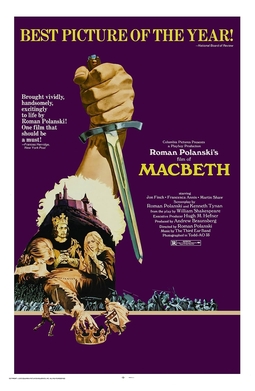
Macbeth is a 1971 historical drama film directed by Roman Polanski, and co-written by Polanski and Kenneth Tynan. A film adaptation of William Shakespeare's tragedy of the same name, it tells the story of the Highland lord who becomes King of Scotland through treachery and murder. Jon Finch and Francesca Annis star as the title character and his wife, noted for their relative youth as actors. Themes of historic recurrence, greater pessimism and internal ugliness in physically beautiful characters are added to Shakespeare's story of moral decline, which is presented in a more realistic style.
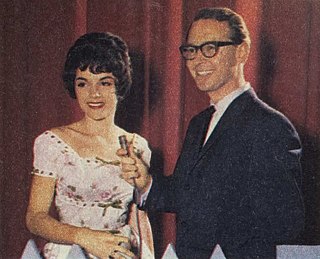
Patricia Ann Ruth Noble was an Australian singer and actress. Initially performing as Patsy Ann Noble, she was a teenage pop singer in the early 1960s, with regular appearances on the Australian music and variety television series Bandstand. In November 1961, she released her biggest hit single, "Good Looking Boy", which reached the Top 10 in Melbourne and Top 20 in Sydney. At the 1961 Logie Awards, she won the Best Female Singer of the Year award from TV Week. By 1962, she had transferred to the United Kingdom and continued her singing career by releasing singles there.
Wanda Ventham is an English actress with many roles on British television since beginning her career in the 1950s.
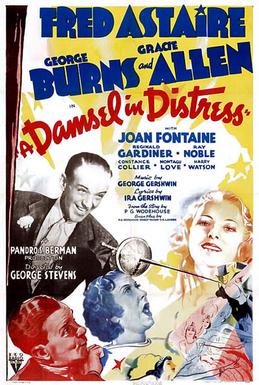
A Damsel in Distress is a 1937 American English-themed Hollywood musical comedy film starring Fred Astaire, George Burns, Gracie Allen and Joan Fontaine. Loosely based upon P.G. Wodehouse's 1919 novel of the same name, and the 1928 stage play written by Wodehouse and Ian Hay, it has music and lyrics by George and Ira Gershwin, and was directed by George Stevens, the second Astaire musical directed by Stevens; the first was Swing Time.
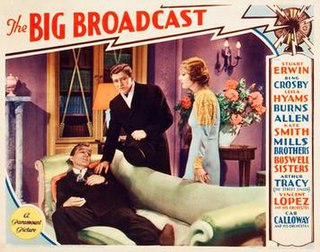
The Big Broadcast is a 1932 American pre-Code musical comedy film directed by Frank Tuttle and starring Bing Crosby, Stuart Erwin, and Leila Hyams. Based on the play Wild Waves by William Ford Manley, the film is about a radio-singer who becomes a popular hit with audiences, but takes a disrespectful approach to his career. His repeated latenesses leads to the bankruptcy of the radio station, but his career is saved by a new friend who buys the station and gives him his job back.

That Lady is a 1955 British-Spanish historical romantic drama film directed by Terence Young and produced by Sy Bartlett and Ray Kinnoch. It stars Olivia de Havilland, Gilbert Roland, and Paul Scofield.

John Morley Shrapnel was an English actor. He is known mainly for his stage work with the Royal Shakespeare Company and the National Theatre in the United Kingdom and for his many television appearances. One of his well-known roles was Mr Skinner in the 1996 live-action film 101 Dalmatians.
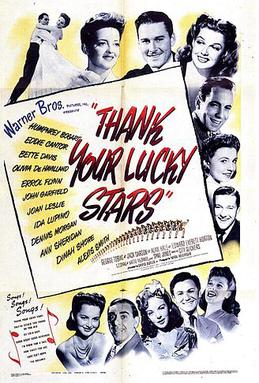
Thank Your Lucky Stars is a 1943 American musical comedy film made by Warner Brothers as a World War II fundraiser, with a slim plot involving theater producers. The stars donated their salaries to the Hollywood Canteen, which was founded by John Garfield and Bette Davis, who appear in this film. It was directed by David Butler and stars Eddie Cantor, Dennis Morgan, Joan Leslie, Edward Everett Horton and S.Z. Sakall.

Live It Up! is a British musical film that starred David Hemmings and was released in 1963. It was filmed at Pinewood Studios and featured musical acts from numerous contributors, including Gene Vincent, Jenny Moss, the Outlaws, Patsy Ann Noble, the Saints and Heinz Burt among others, most notably Kenny Ball and His Jazzmen. The film also featured young actor Steve Marriott. Another actor, Mitch Mitchell, later became the drummer of The Jimi Hendrix Experience.

The Navy Lark is a 1959 British comedy film based on The Navy Lark radio series broadcast on the BBC Light Programme. It featured Cecil Parker, Ronald Shiner and Leslie Phillips, Gordon Jackson and Hattie Jacques. It was filmed mainly at West Bay, Bridport, Dorset. Only Phillips had appeared on the radio version – all other parts were recast. The film was produced at Walton-on-Thames.
All Neat in Black Stockings is a 1969 British comedy film directed by Christopher Morahan and starring Victor Henry, Susan George and Jack Shepherd. Based on a 1966 novel by Jane Gaskell, its plot follows an easygoing window cleaner called 'Ginger' who falls in love with a woman he meets in Swinging London. The film is in the British New Wave tradition and shows the blue collar working man lifestyle. The film is a 1960s time capsule of cars, dress and dancing.

Run for Your Wife is a 2012 British comedy film, based on the 1983 theatre farce Run for Your Wife, written by Ray Cooney who, along with John Luton, also directed the film. Upon release, the film promptly received universally negative reviews from critics and has been referred to as one of the worst films of all time, after it grossed just £602 ($765.38) in its opening weekend.
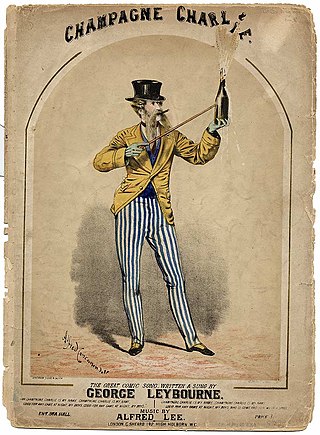
Alfred Concanen was, for over twenty-five years, one of the leading lithographers of the Victorian era, best remembered for his illustrated sheet music covers for songs made popular by famous music hall performers of the time. These covers usually featured portraits of the performers or humorous scenes from their songs. Sacheverell Sitwell said of him, "The most painstaking of the Pre-Raphaelites must fail beside Concanen!"
Dennis Lotis was a South African-born British singer, actor, and entertainer, whose popularity was greatest in the 1950s. He was described as having "a sophisticated style that was particularly attractive to the young female population".

The Human Jungle is a British TV series about a psychiatrist, made for ABC Weekend TV by Independent Artists.
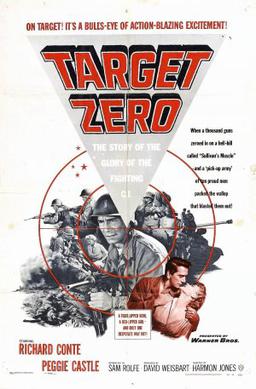
Target Zero is a 1955 American war and drama film directed by Harmon Jones and written by James Warner Bellah and Sam Rolfe.The film stars Richard Conte, Peggie Castle, Charles Bronson, Richard Wyler, L. Q. Jones and Chuck Connors. The film was released and published by Warner Bros. on November 15, 1955.
Who Is Sylvia? is a 1950 comedy play by the British writer Terence Rattigan about a man obsessed with the image of a woman he met as a seventeen year old and his search for her throughout the rest of his life. The play offered a thinly veiled portrayal of Rattigan's own philandering father. Like Perchance to Dream, Ivor Novello's long-running musical terminating only two years previously, Rattigan chose a line from William Shakespeare for his title. The line is the first wistful question of a song passage in The Two Gentlemen of Verona.

Our Man at St. Mark's is a British comedy television series which originally aired on ITV between 1963 and 1966. Today the series is largely lost, with only four out of forty six episodes remaining in the archives.














